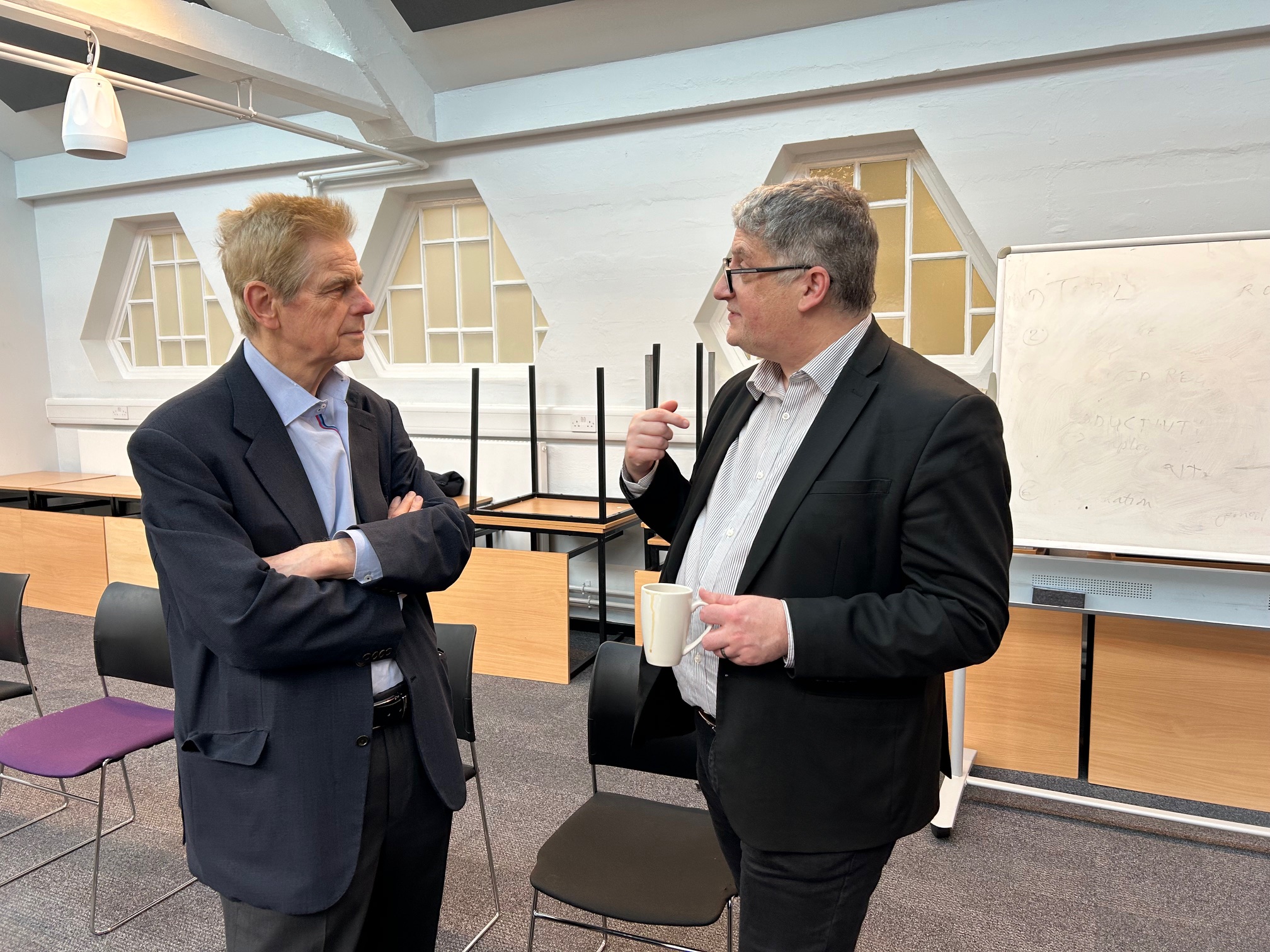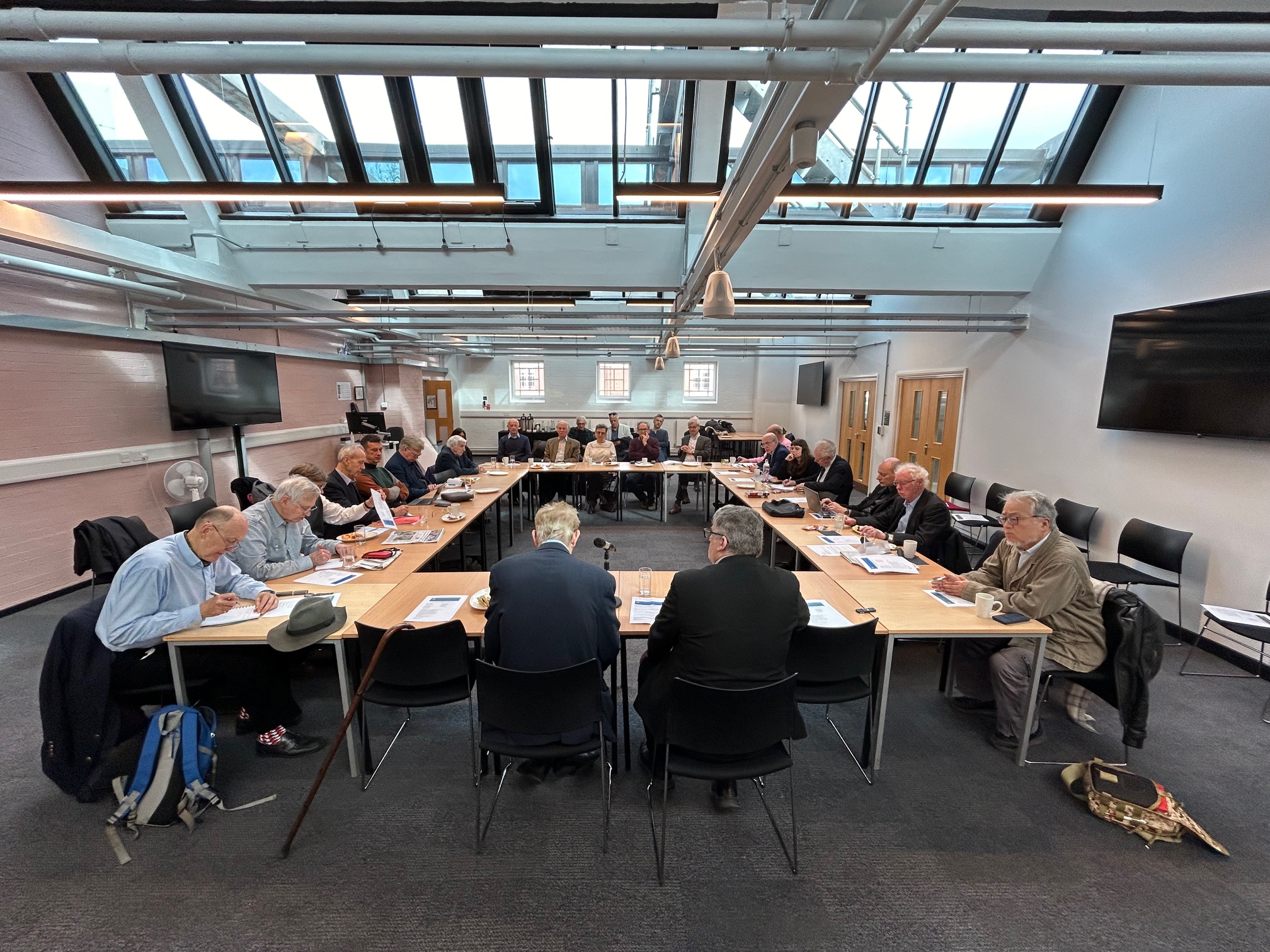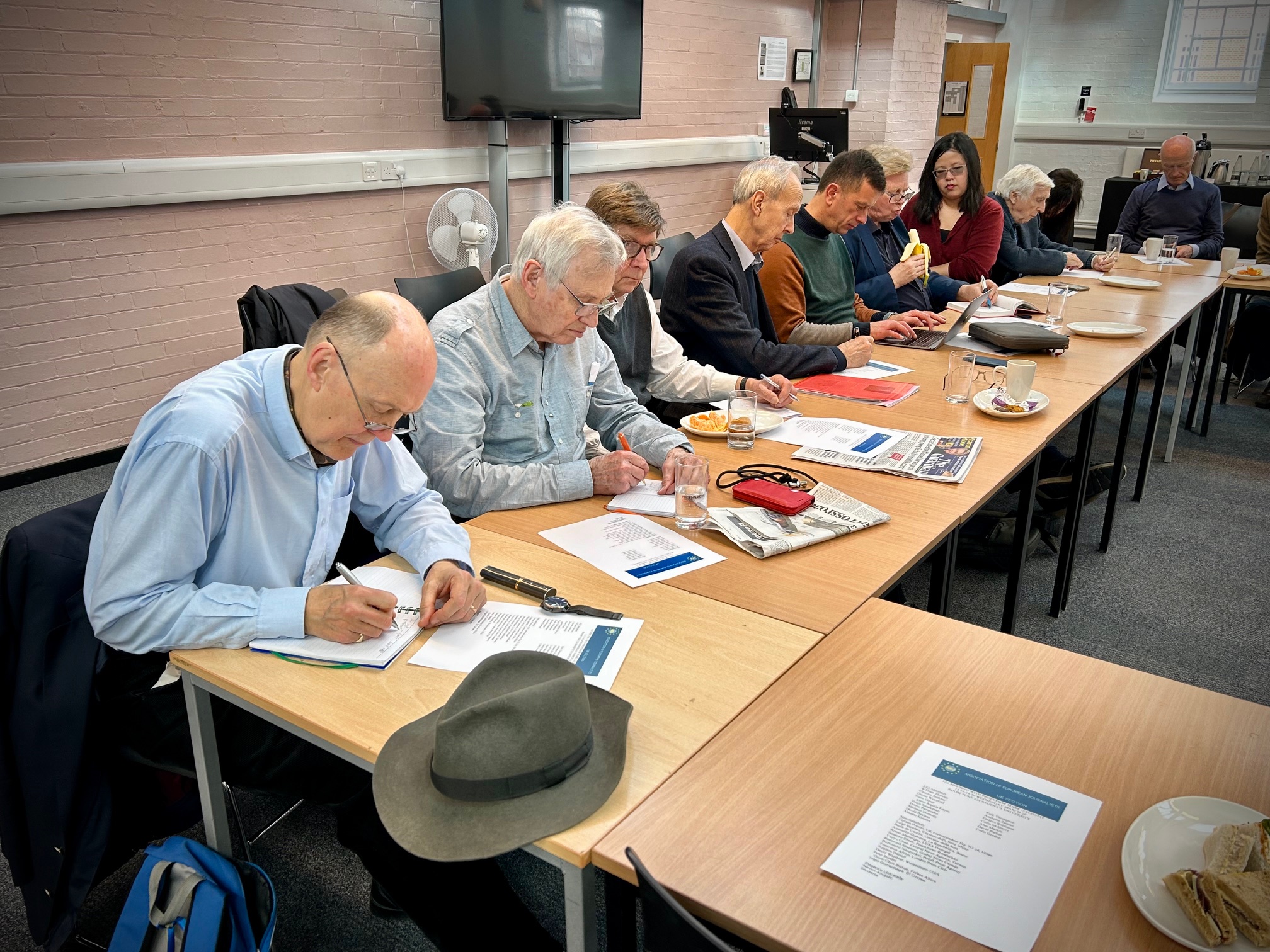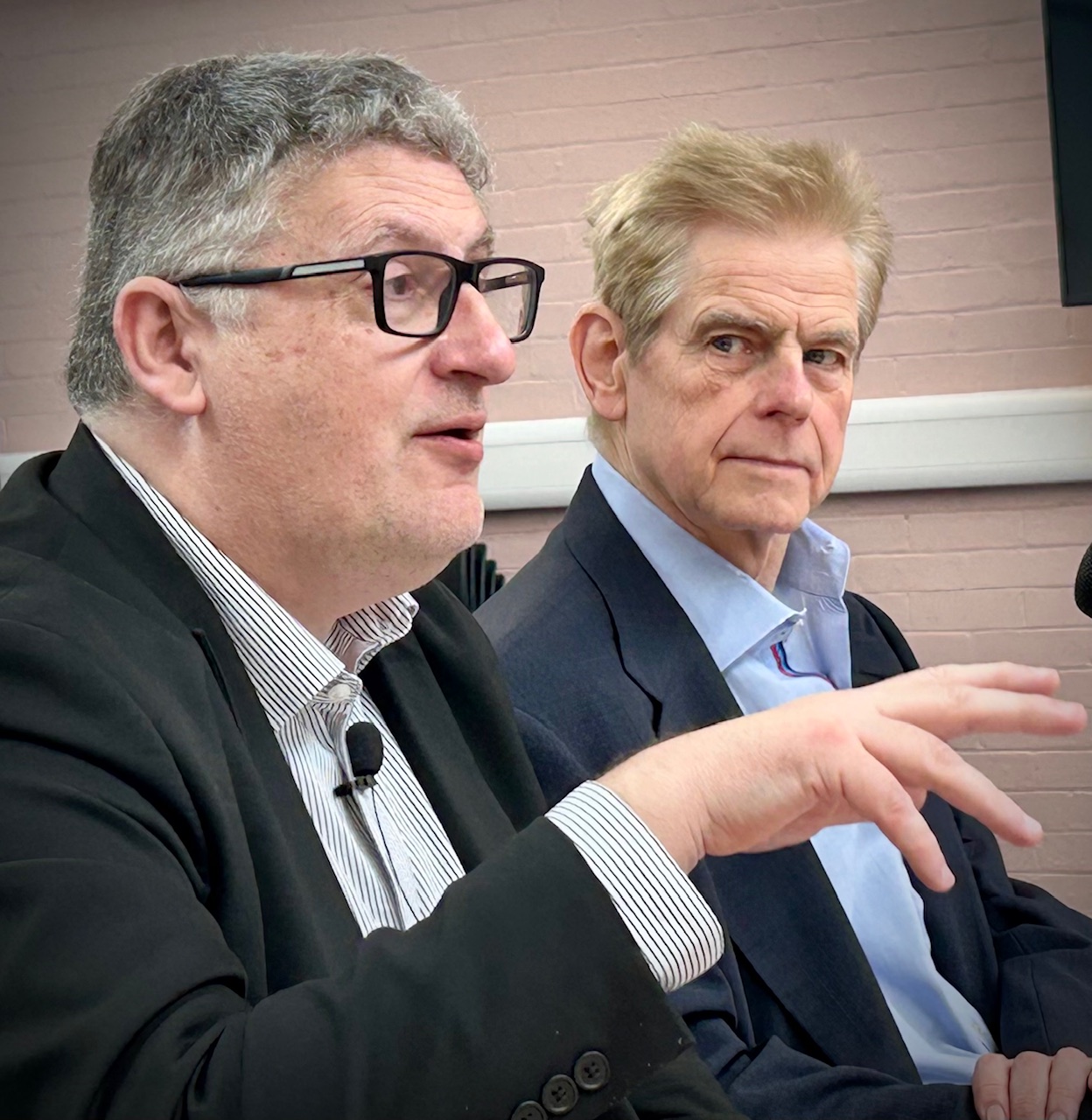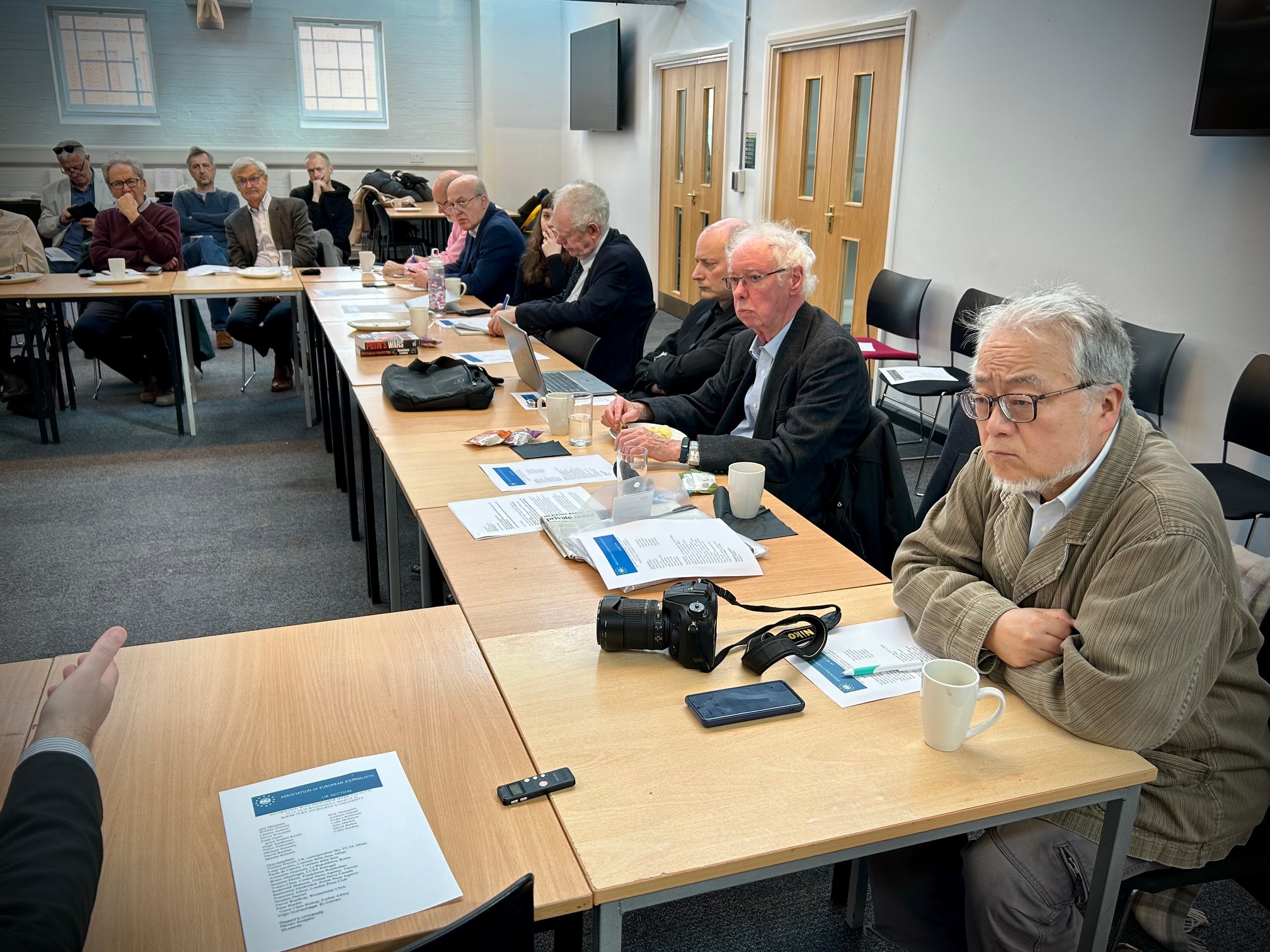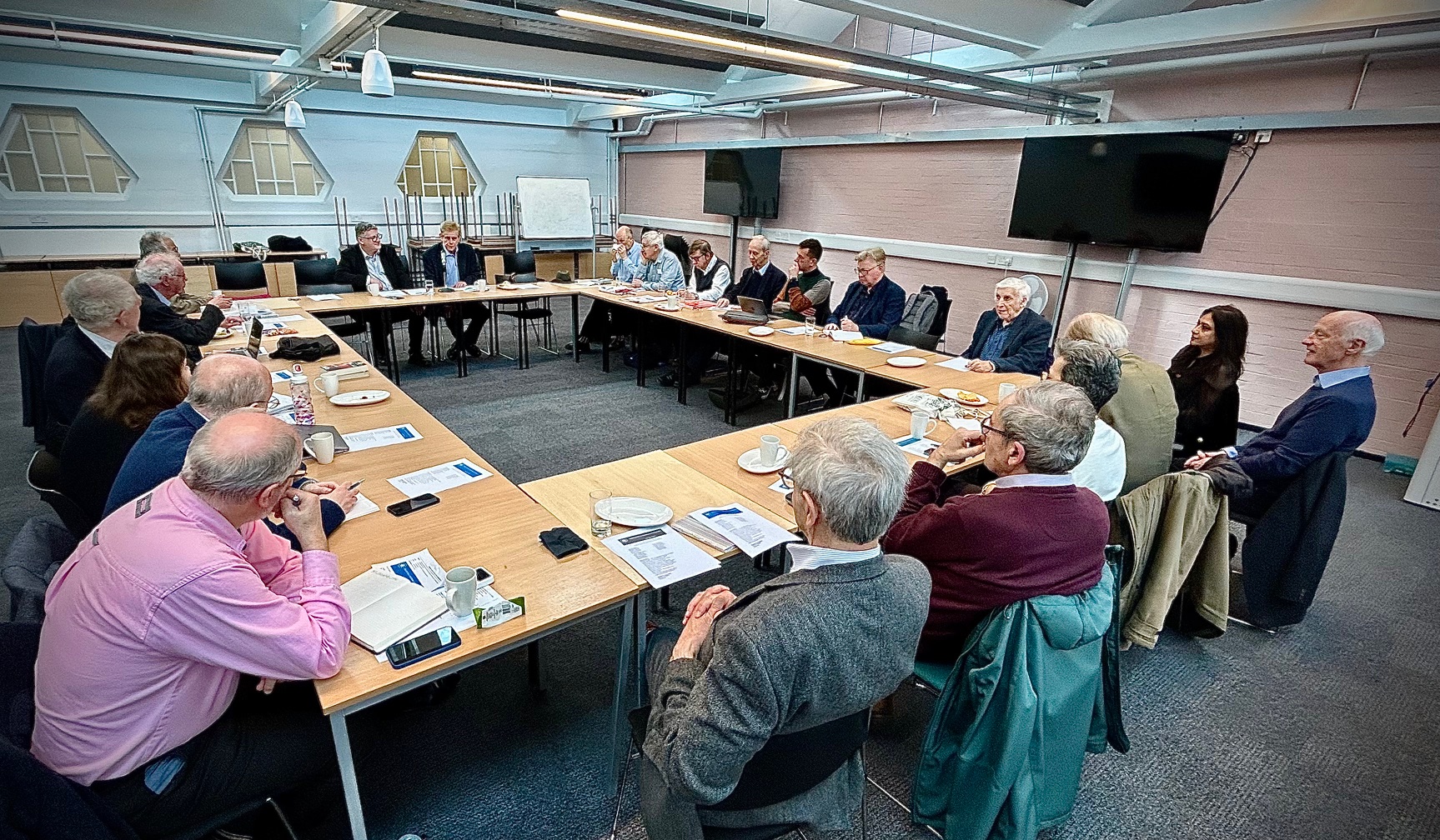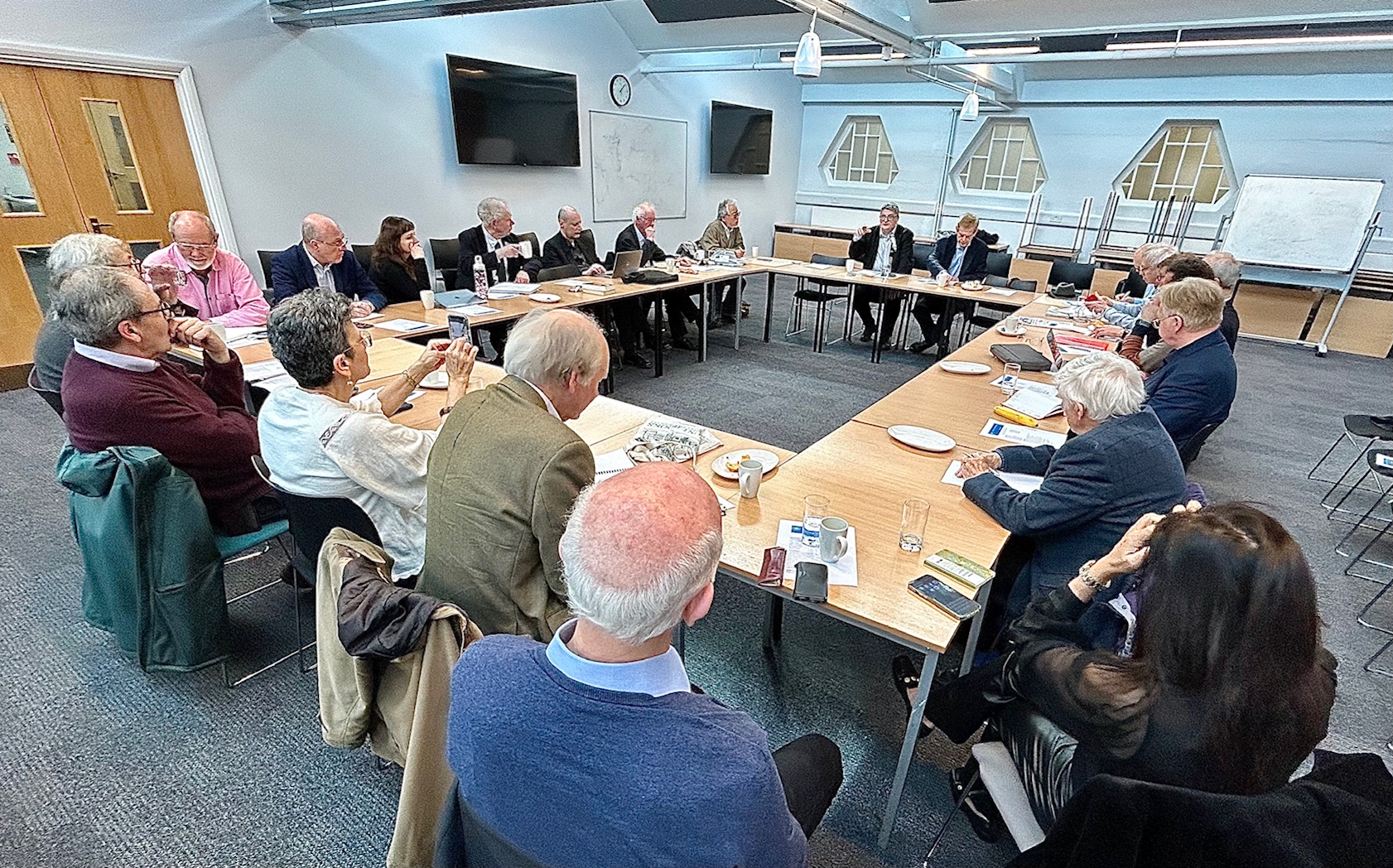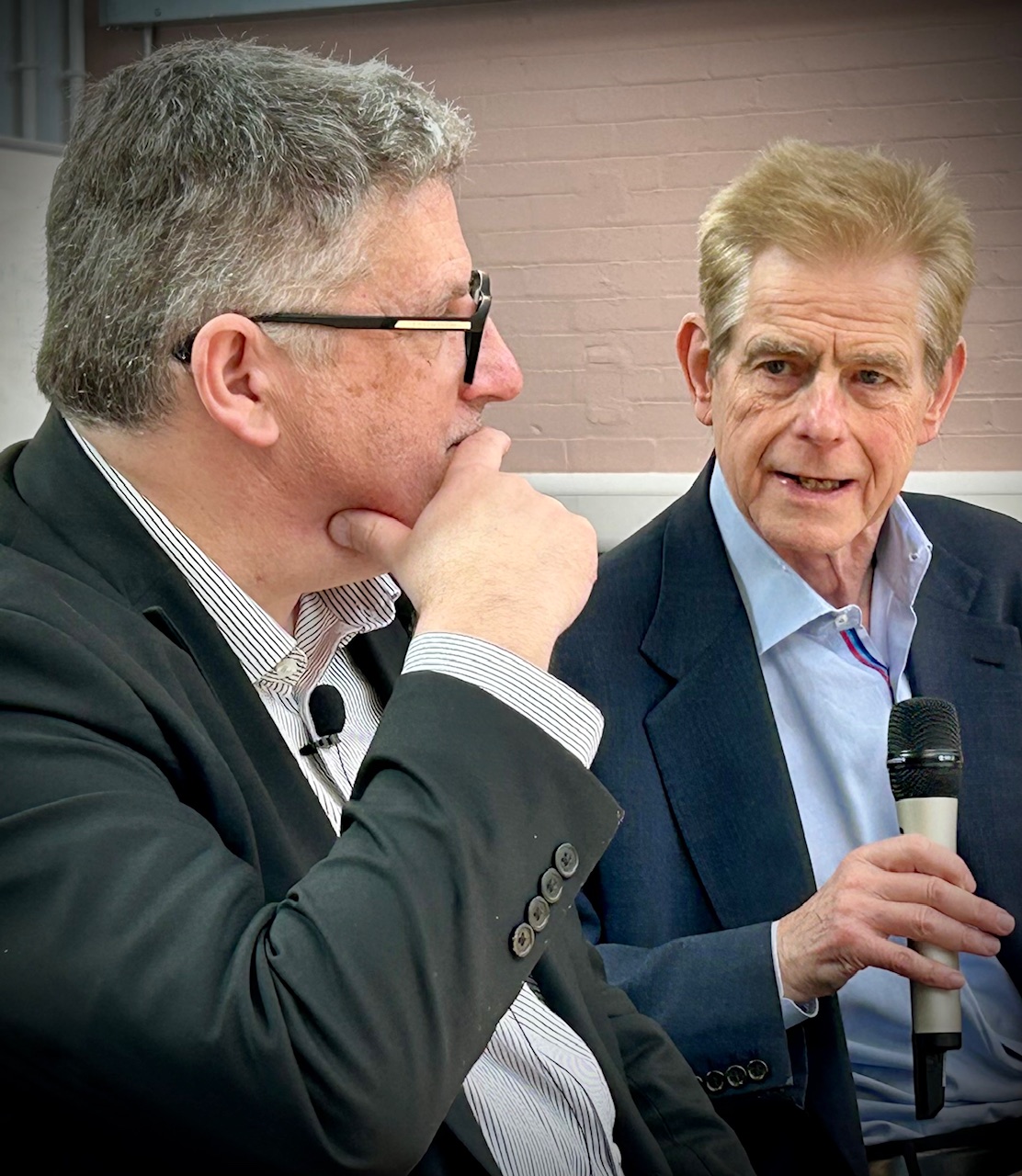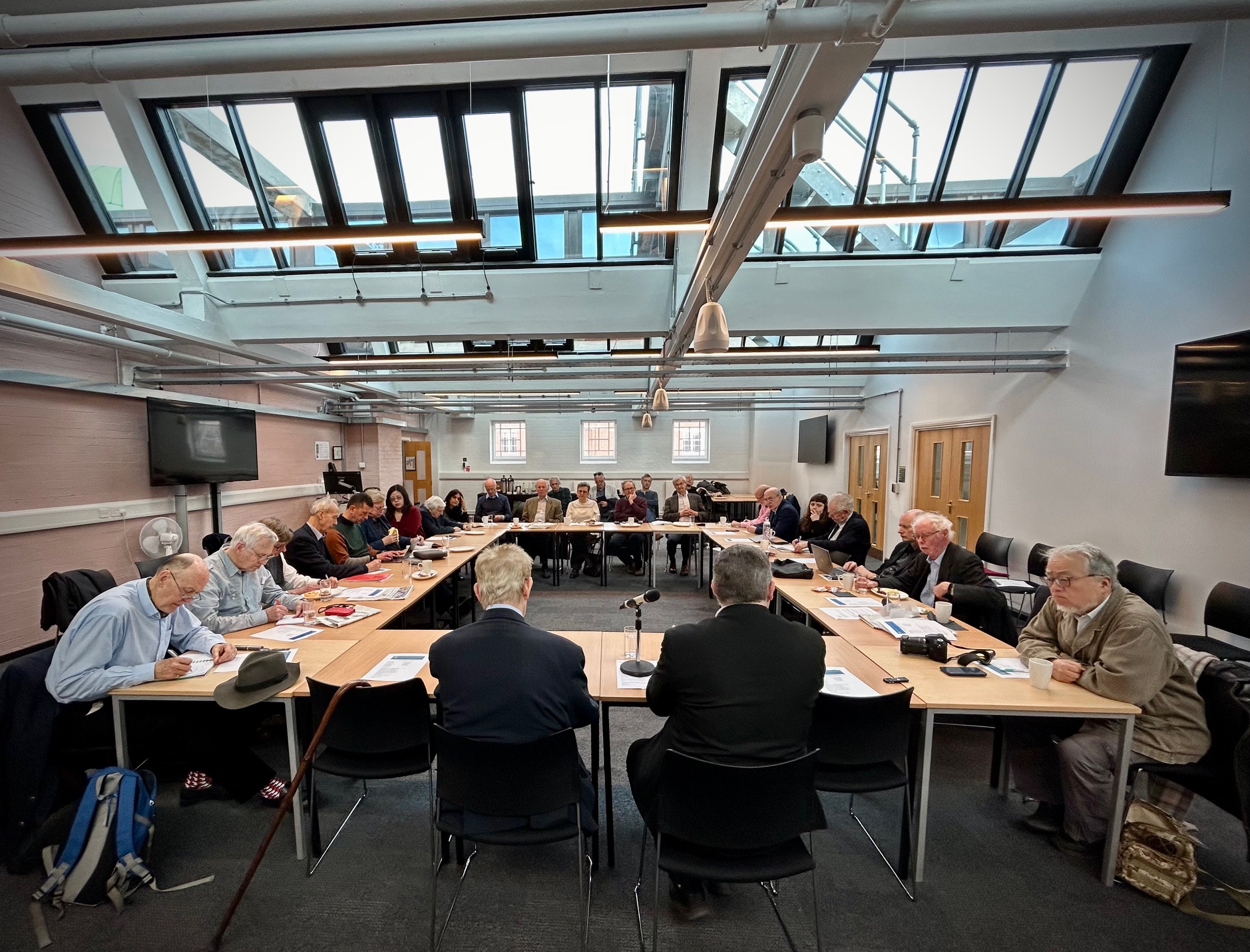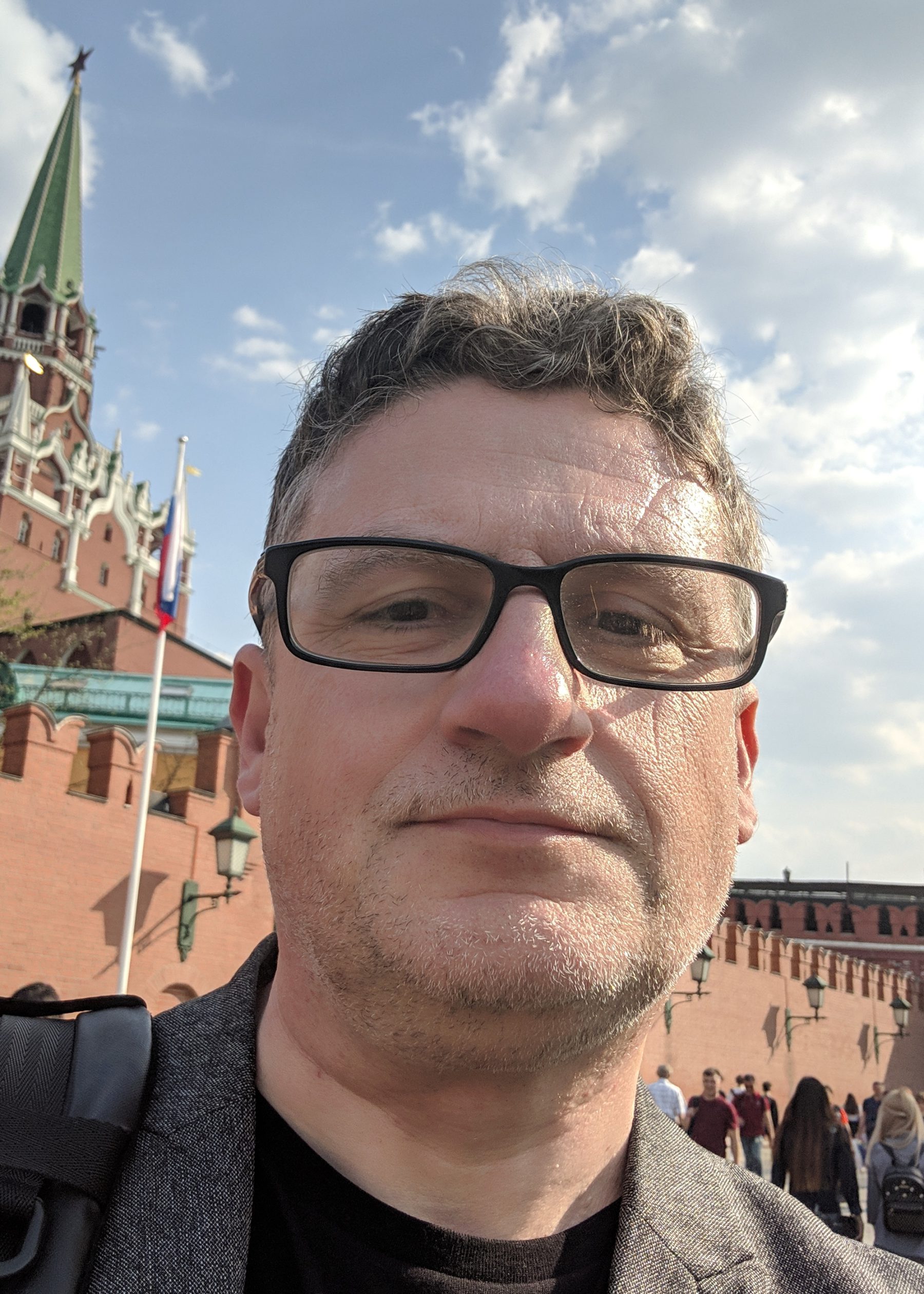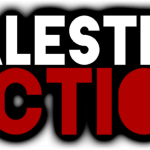Vranyo – Russian for I’m telling lies and you know I’m telling lies but I’m going to tell them anyway.
That was veteran Russia watcher Mark Galeotti’s judgment on the recent Russian election in which President Vladimir Putin was pronounced victor with an alleged 87% of the vote.
Galeotti, an expert and prolific writer on Russia and international crime, briefed an AEJ lunch meeting on 20 March in the wake of the election and the two-year anniversary of the ongoing war in Ukraine.
Galeotti is an honorary professor at University College London, a senior associate fellow at RUSI, and operator of his own consultancy Mayak Intelligence. An updated edition of his book Putin’s Wars: From Chechnya to Ukraine was published by Osprey on 1 February.
We have this report from Stephen Dalziel, former Russian Affairs Analyst at BBC World Service.
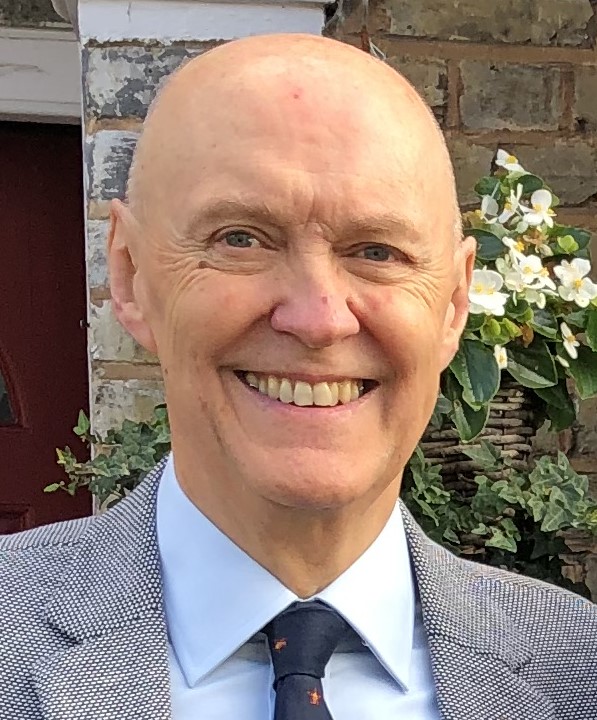
Putin’s War In Ukraine – and at Home
20 March 2024, by Stephen Dalziel
Mark Galeotti chose to focus his presentation on three main issues: the Russian presidential election, which concluded just three days previously; how the war in Ukraine was likely to play out in the coming year; and what the longer term prospects might be for the war.
As was anticipated in a presentation by someone considered to be one of today’s most highly regarded Russia-watchers, this was a true tour de force in both the talk itself and the Q&A. Speaking without notes, Galeotti said that while the result of the recent election was never in doubt, it was a particularly good example of Russian vranyo – I’m telling lies and you know I’m telling lies but I’m going to tell them anyway.
He suggested that Putin and his close circle had decided to pick the figure of 87% support for Putin, despite – in Galeotti’s assessment – probably only a quarter of the Russian population supporting Putin and the war; about the same number opposing them, but keeping their heads down because the country is now ‘a thuggish, brutal police state’; and half of Russians trying their best to ignore what’s going on.
This time there were three other names on the ballot paper; in 2030, he mused, would Putin not even have this pretence, and allow no other names?
On paper the Russian economy appears to be doing well, despite Western sanctions. But when you look at the details, you find that 40% of the economy is now focussed on the military, meaning that money is not being spent on infrastructure, housing, the heating system (which is controlled by region, not by house or building), or research and development. By not taking a long-term view, Putin is ‘mortgaging the future of Russia’.
Whilst the economic hardship at home hardly affects the progress of the war in Ukraine, Galeotti believes Putin is aware that there are limits on the patience of the Russian people. He cited the fact that Putin did not order another mass mobilisation ahead of the elections, despite calls for it by some of his generals. In answering a question later, Galeotti pointed out that in terms of overall numbers Russia has lost far more men than Ukraine; but in terms of the percentage of the population Ukraine’s losses are greater.
The audience picked up on another salient point Galeotti made — that Russia has an advantage not only in the amount of manpower it can throw at the war, but also in the production of shells, drones and – crucial for the artillery – the barrels through which the shells are fired, which in high intensity warfare often need to be replaced.
As for manpower, Galeotti does not rule out the possibility that, now that the election is past, there could yet be another mass mobilisation in Russia. The last one took place in September 2022, but even though it produced an extra 300,000 soldiers for the war effort, some 600,000 to 900,000 Russians fled abroad to avoid the draft.
The fact that Russia’s economy is now producing so much military materiel means that even with Western countries sending military equipment to Ukraine, this doesn’t work ‘like Amazon Prime’; the West cannot produce the equipment as quickly as Russia can.
Galeotti’s prognosis for the war this year is that Russia is likely to make some gains, such as the recent seizure of the ruins of the city of Avdiivka, which was done at a very high cost in casualties; but he rules out the possibility of Russia ever capturing the whole of Ukraine. In answer to a question he said that Putin does not want a war with NATO, and the idea of Russian tanks rolling through Ukraine and ending up on the Hungarian border is not going to happen.
He sees a better long-term picture for Ukraine, with 2024 being a year of stopping major Russian advances, but 2025 seeing a fightback. When asked about the possible role of Donald Trump’s impact on the war, should he win the US presidential election, Galeotti believes that, despite Trump’s rhetoric, if Ukraine showed itself to be in a strong position come January 2025, Trump may even back Ukraine so that he is seen to be on the winning side.
As for Russia’s long-term future, Galeotti doesn’t hold out much hope for a significant change in direction in Russian politics soon; there will be ‘no liberal, democratic Russia for another generation at least’. But he believes there will be ‘black swan’ moments, which could shake Putin’s status quo. The revolt by Yevgeny Prigozhin last year was one such moment, with middle-ranking officers choosing to sit on the fence and ignore calls from senior officers to stop Prigozhin until it was clear what was happening.
And if Putin were to die? Rather like what happened when Stalin died, there will be uncertainty, because there is no obvious successor. Yet the younger generation of elites – those now in their forties – may push for a change of direction, towards greater pragmatism and a return to the situation enjoyed by their elders in the ‘good old days’, when they could ‘steal at home and spend abroad’.
AEJ UK meeting 20 March 2024
